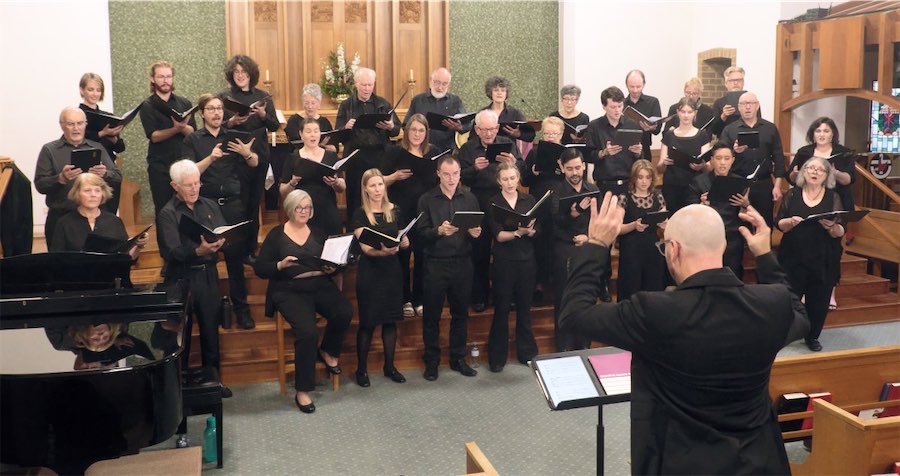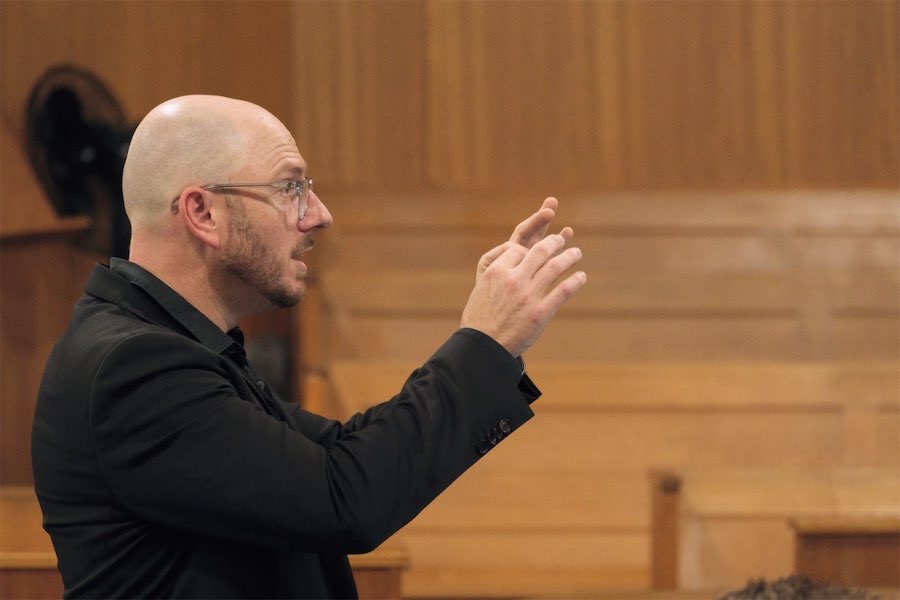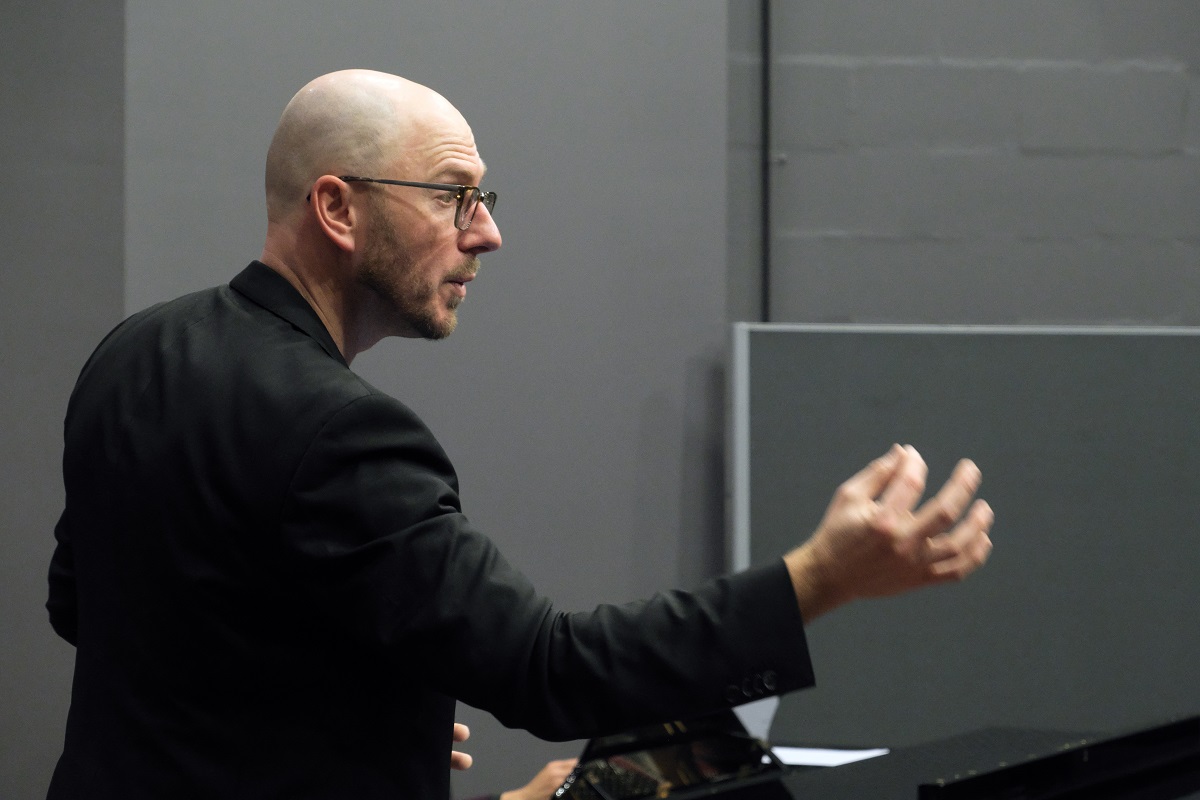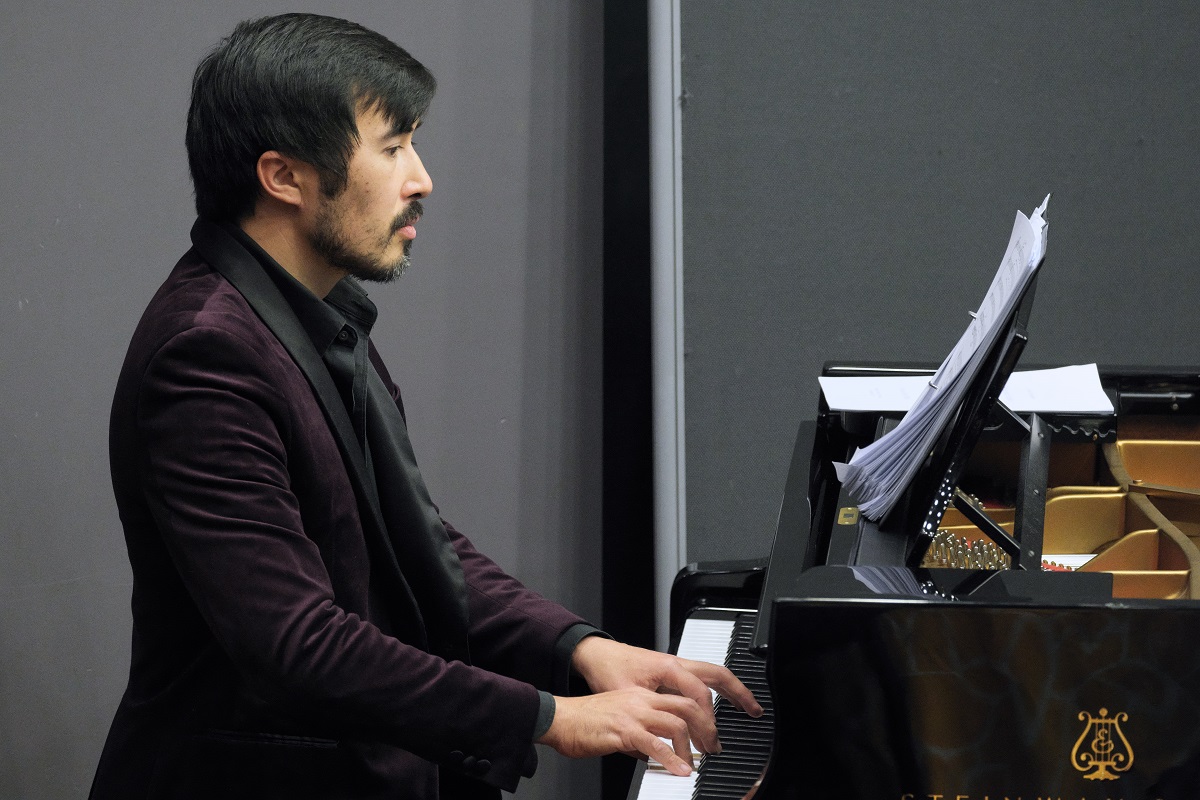Choir’s joyful start to Christmas season
 Monday, December 11, 2023 at 12:10AM
Monday, December 11, 2023 at 12:10AM  Oriana Chorale performs “O Magnum Mysterium” at Wesley Uniting Church, Forrest. Photo: Peter Hislop
Oriana Chorale performs “O Magnum Mysterium” at Wesley Uniting Church, Forrest. Photo: Peter Hislop
Music / “O Magnum Mysterium”, Oriana Chorale, directed by Dan Walker. At Wesley Uniting Church, Forrest, December 1. Reviewed by LEN POWER.
ORIANA Chorale’s final concert of 2023 delivered masterworks from two of the 20th century’s greatest composers, Francis Poulenc and Frank Martin, as well as works by the 16th century Italian composer Madalena Casulana and Sydneysider Brooke Shelley.
Beginning with “Nativity”, a setting of a poem by James McAuley, Shelley’s work opened quietly and built to an emotional sense of wonder at the beauty of small natural things in this world.
The choir sang it with great accuracy and sensitivity, achieving an appealing depth of feeling.
After this exquisite opening, Martin’s “Mass for Double Choir” followed. This work, composed between 1922 and 1926, did not receive a premiere until 1963 in Hamburg, Germany. It is now considered one of the great choral works and it was given a fine presentation by the choir.
The highlights of its performance included the dramatic and complex combined Sanctus and Benedictus and the movingly sung Agnus Dei.
The 16th century composer, Casulana’s “O Notte O Cielo O Mar” (oh night, oh sky, oh sea) comes from her second book of madrigals. This work is notable for its emotional restraint and the choir gave it a sense of great beauty and reflection.
 Dan Walker conducts the Oriana Chorale’s “O Magnum Mysterium”. Photo: Peter Hislop
Dan Walker conducts the Oriana Chorale’s “O Magnum Mysterium”. Photo: Peter Hislop
The final work, Poulenc’s “Quatre motets pour le temps de Noёl”, paints four colourful scenes from the nativity story.
The first part takes us immediately into the wonder and mystery of the nativity, leads into the witness by the shepherds, the sighting of the star and, ultimately, celebrates the birth of Christ.
There was strength in the choir’s singing of the profound opening and its delivery of the description of the wise men sighting the star was hauntingly beautiful.
The singing of the finale was dramatic and joyful, making this a perfect end to a concert that left us in no doubt that the Christmas season has begun.

 Oriana Chorale and Phoenix Collective. Photo: Peter Hislop.
Oriana Chorale and Phoenix Collective. Photo: Peter Hislop. Dan Walker conducting. Photo: Peter Hislop
Dan Walker conducting. Photo: Peter Hislop Jem Harding on piano. Photo: Peter Hislop
Jem Harding on piano. Photo: Peter Hislop


